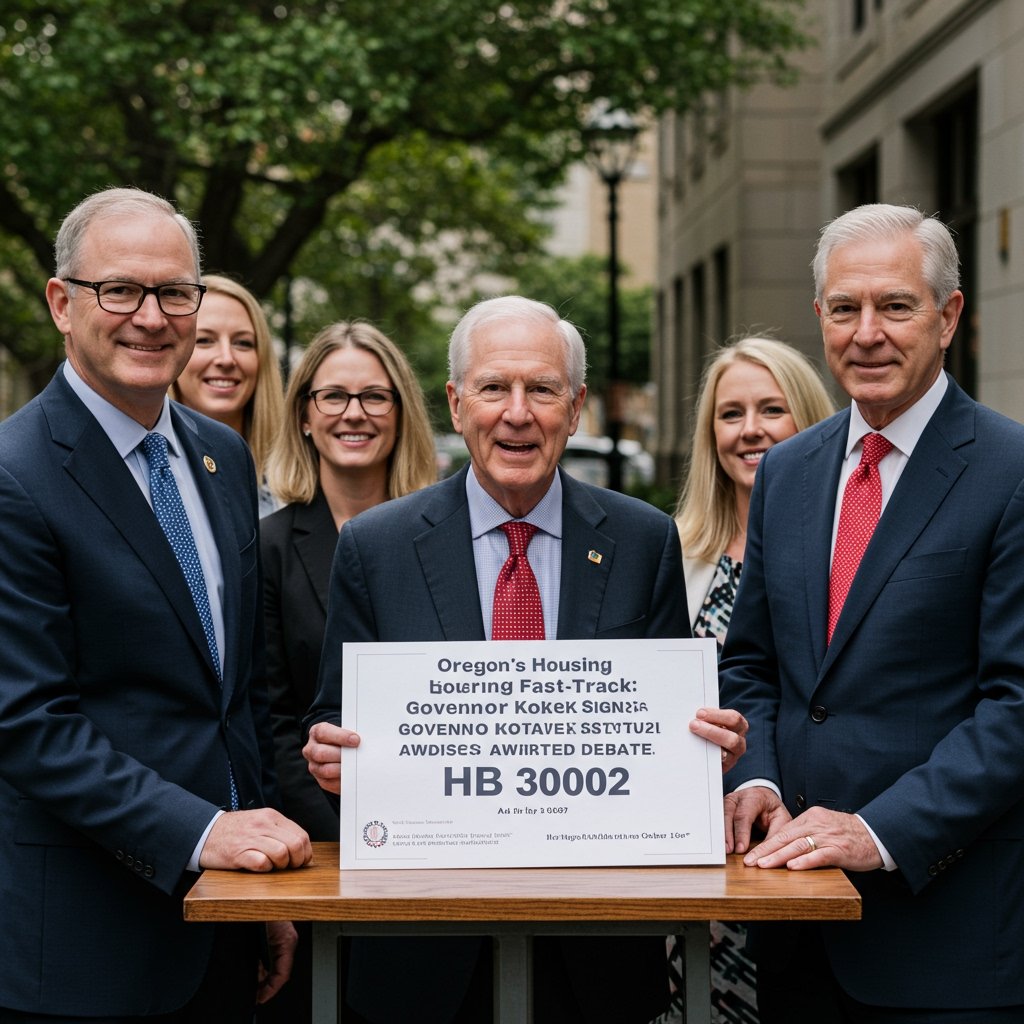Oregon Governor Enacts Sweeping Housing Bill, Sparks Widespread Editorial Debate
Salem, OR – Governor Tina Kotek on Friday signed House Bill 3002 into law, a comprehensive and contentious legislative measure designed to dramatically accelerate the pace of housing development across Oregon. The new law represents a significant policy shift, directly targeting the state’s persistent and acute housing crisis, characterized by soaring costs, low vacancy rates, and a critical shortage of available homes. HB 3002 seeks to address these challenges primarily by streamlining permitting processes for residential construction and altering some existing land-use regulations statewide. This approach aims to remove perceived bureaucratic hurdles and statutory impediments that proponents argue have historically slowed down or blocked necessary housing projects, thereby increasing supply and, over time, potentially easing affordability pressures.
The bill’s journey through the legislative process was marked by intense debate and significant division, reflecting fundamental disagreements within Oregon over how best to balance urgent development needs with long-standing environmental protections and principles of local governmental autonomy. While advocates for increased housing supply lauded the bill as a necessary, albeit potentially imperfect, step towards alleviating the crisis, opponents voiced serious concerns about its potential consequences.
Opposition was particularly strong from environmental groups, who raised alarms about the potential impact of accelerated development and altered land-use rules on conservation efforts, sensitive ecosystems, and the state’s environmental quality. Their concerns center on the possibility that streamlining processes could bypass or weaken crucial environmental reviews and protections previously afforded to specific sites or types of development. They argued that while housing is vital, it should not come at the expense of Oregon’s natural heritage and sustainability goals, suggesting that the bill might not adequately safeguard against negative ecological outcomes in the rush to build.
Similarly, advocates for local government autonomy expressed significant reservations. Their concerns focused on provisions within HB 3002 that they perceive as overriding or diminishing local planning authority. Local officials and planners value their ability to tailor development regulations to the specific needs, character, and infrastructure capacity of their individual communities. HB 3002’s statewide approach and its mandates regarding permitting timelines and certain land-use standards are viewed by some as an unwelcome intrusion on local control, potentially undermining community-specific planning efforts and the ability of local governments to respond to unique local conditions and resident preferences. There were worries that the bill could lead to development projects that are out of sync with local comprehensive plans or strain local infrastructure without adequate mechanisms for local input or mitigation.
Supporters of HB 3002, including housing developers, homebuilders associations, and many housing advocates, countered that the scale of Oregon’s housing crisis demands bold, statewide action. They presented evidence suggesting that lengthy and unpredictable permitting processes, coupled with complex and sometimes inconsistent local land-use rules, have been major contributors to the slow pace of housing construction relative to population growth and demand. They argued that the economic and social costs of the housing shortage – including increased homelessness, difficulty for businesses to attract workers, and a reduced quality of life for many Oregonians struggling with housing insecurity – necessitate the types of changes proposed in the bill. For proponents, the urgency of providing shelter and stabilizing housing costs outweighed the potential drawbacks cited by opponents, viewing the bill as a critical intervention after years of under-building.
Governor Kotek, who campaigned on a promise to tackle the housing crisis, framed the signing of HB 3002 as a fulfillment of that commitment, emphasizing the need for immediate and impactful action. Her administration highlighted the potential for the bill to unlock new development opportunities and accelerate the construction of thousands of much-needed homes across various income levels statewide. The specific details of how the streamlining and land-use alterations will be implemented and enforced will be crucial in determining the bill’s ultimate effectiveness and its actual impact on both development speed and environmental/local concerns.
The signing of HB 3002 on Friday has not marked the end of the debate, but rather a new phase, immediately triggering a wave of editorials across newspapers and media outlets throughout the state. This widespread commentary underscores the deep divisions the bill exposed and continues to highlight. Editorials range from celebrating the bill as a necessary, pragmatic response to an emergency, to sharply criticizing it as an overreach that sacrifices essential local control and environmental safeguards. The bill’s passage and enactment have solidified it as a central and polarizing topic of current public and media commentary in Oregon, illustrating the complex trade-offs inherent in addressing the housing crisis while navigating environmental stewardship and governmental responsibilities at different levels. The ongoing public discourse reflects the significant implications of HB 3002 for the future landscape, governance, and livability of Oregon communities.



